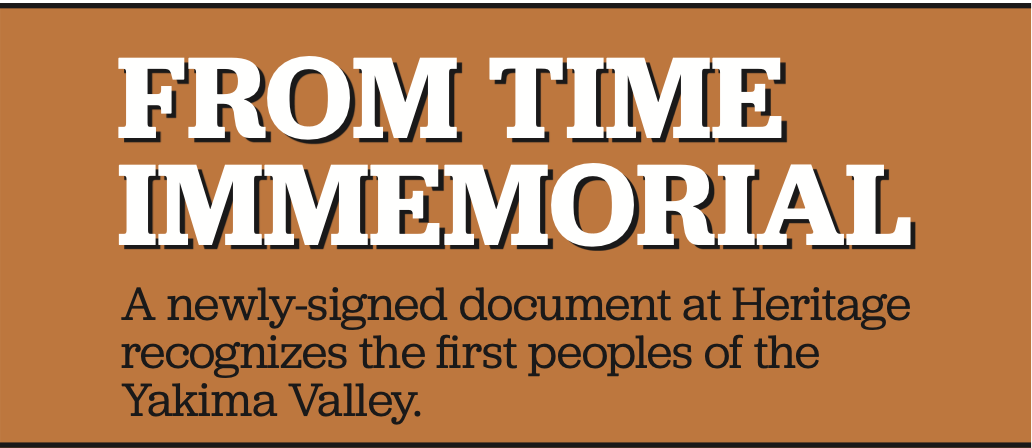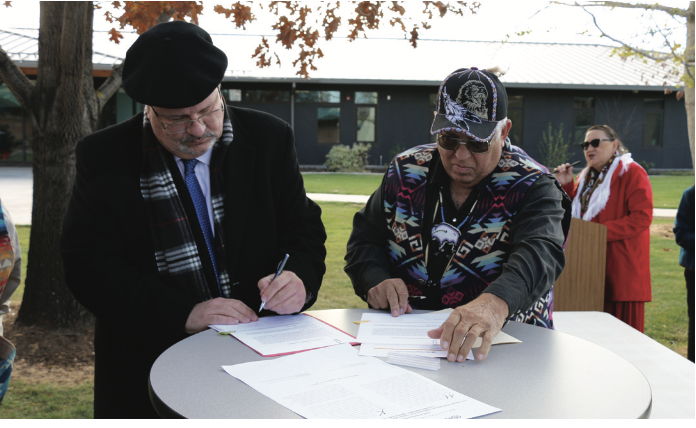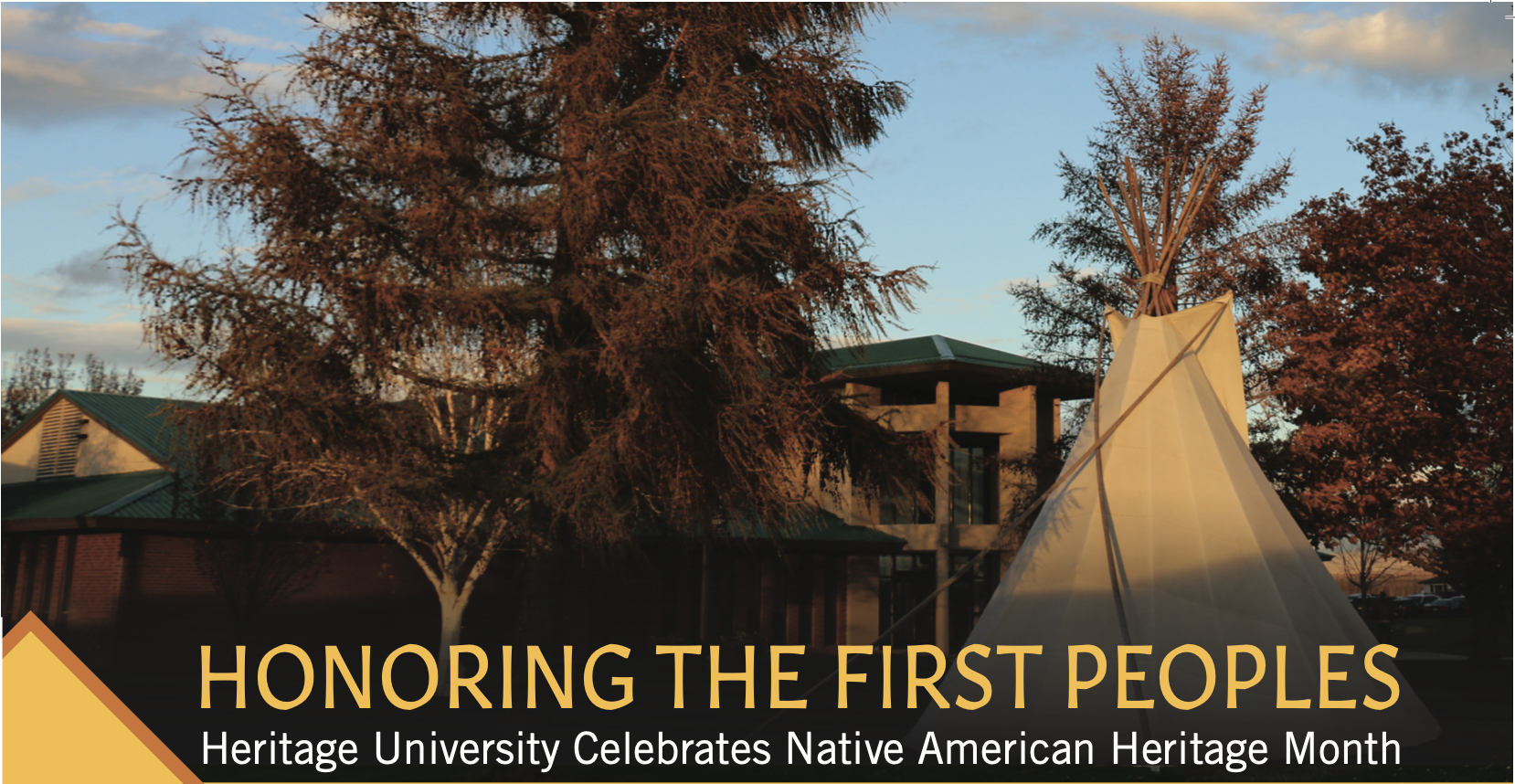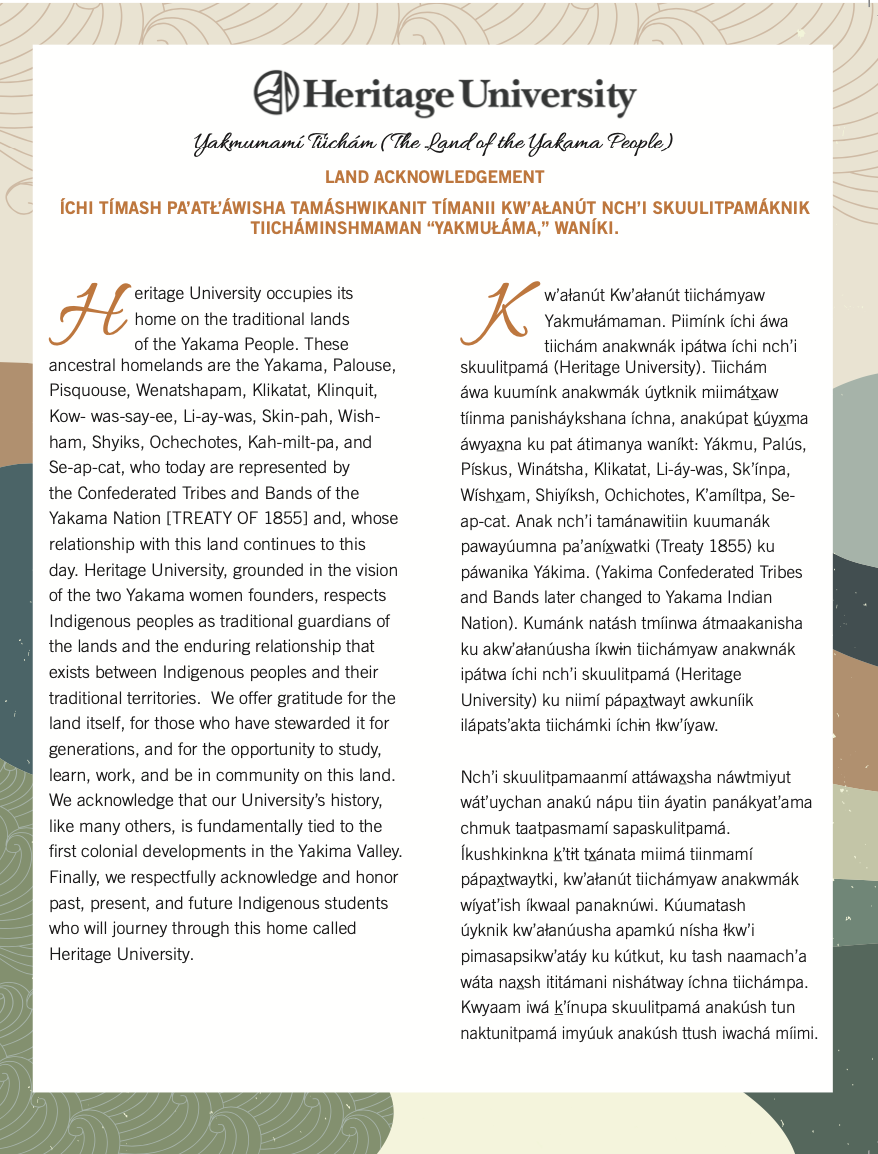Honoring the First Peoples
Heritage University’s relationship with the Yakama Nation is rooted in its history and intricately tied to its future. It is the college founded by two Yakama women, situated on the ancestral lands of the Yakama Nation, and the academic home to hundreds of Native American students and alumni.
Each year, the university celebrates this relationship and honors Native Americans everywhere through its events and activities during Native American Heritage Month, which is recognized nationally every November.
This year’s celebrations were especially meaningful given that it was among the first on-campus activities held since March 2020. As always, the celebration kicked off with a flag-raising ceremony with the Yakama Warriors Association. Additionally, we honored five Native American elders for their lifetime contributions to their communities. And, we formalized our recognition of indigenous peoples from time immemorial as the stewards of the land upon which the university now inhabits with the signing of the university’s Land Acknowledgement statement.
 Long before the ground was turned to within these documents to best reflect Heritage and construct the first building that would one day become Heritage University, the land upon which the college sits was occupied and cared for by the indigenous people of the Columbia River Basin. On November 10, President Andrew Sund, Ph.D. and Kip Ramsey, board member and chair of the university’s Tribal Relations Committee, signed a formal Land Acknowledgement Statement that recognizes and respects those who were the traditional stewards of the land and the enduring relationship that exists between the Yakamas and their traditional territory.
Long before the ground was turned to within these documents to best reflect Heritage and construct the first building that would one day become Heritage University, the land upon which the college sits was occupied and cared for by the indigenous people of the Columbia River Basin. On November 10, President Andrew Sund, Ph.D. and Kip Ramsey, board member and chair of the university’s Tribal Relations Committee, signed a formal Land Acknowledgement Statement that recognizes and respects those who were the traditional stewards of the land and the enduring relationship that exists between the Yakamas and their traditional territory.
“It is important that we acknowledge the tribes and their place as stewards of this land, of the entire continent, since time immemorial,” said Ramsey. “In acknowledging their role, we acknowledge our responsibility to understand our past and to carry on their stewardship for the benefit of our children and our children’s children.”

Andrew Sund, Ph.D., president of Heritage University (left) and Kip Ramsey, Heritage University board member and chair of the board’s Tribal Relations Committee (right), sign copies of the Land Acknowledgement Statement during a ceremony held next to the Heritage University TeePee November 10, 2021.
The acknowledgment was created by a committee of Indigenous faculty and staff members at Heritage University with input from Yakama Nation tribal leaders. The process was a year in the making. Committee members explored similar documents established at other colleges and universities and adapted the language and themes within these documents to best reflect Heritage and the Yakama people. Once written, the initial draft was presented to Yakama Nation tribal leaders for their input.
The entire process ended with the official document, two abbreviated statements for everyday use, as well as an action plan with short and long- term suggestions to maximize the significance of the acknowledgment. That plan includes the public display of the document, reading acknowledgment at the start of university events, hosting “learning circles” on Yakama culture and traditions for faculty, staff and administrators, and enhancing the university’s existing American Indian Studies program, so the university becomes an education destination for indigenous students from throughout the region.
“We know that education is intricately woven into the Yakama culture, as tribal elders share their knowledge with their children and younger tribal members. Heritage was created to bring higher education to this land and to serve as a complement to the education systems that already exist within the Nation,” said Sund.
The official, signed document is now framed and on display on campus.


